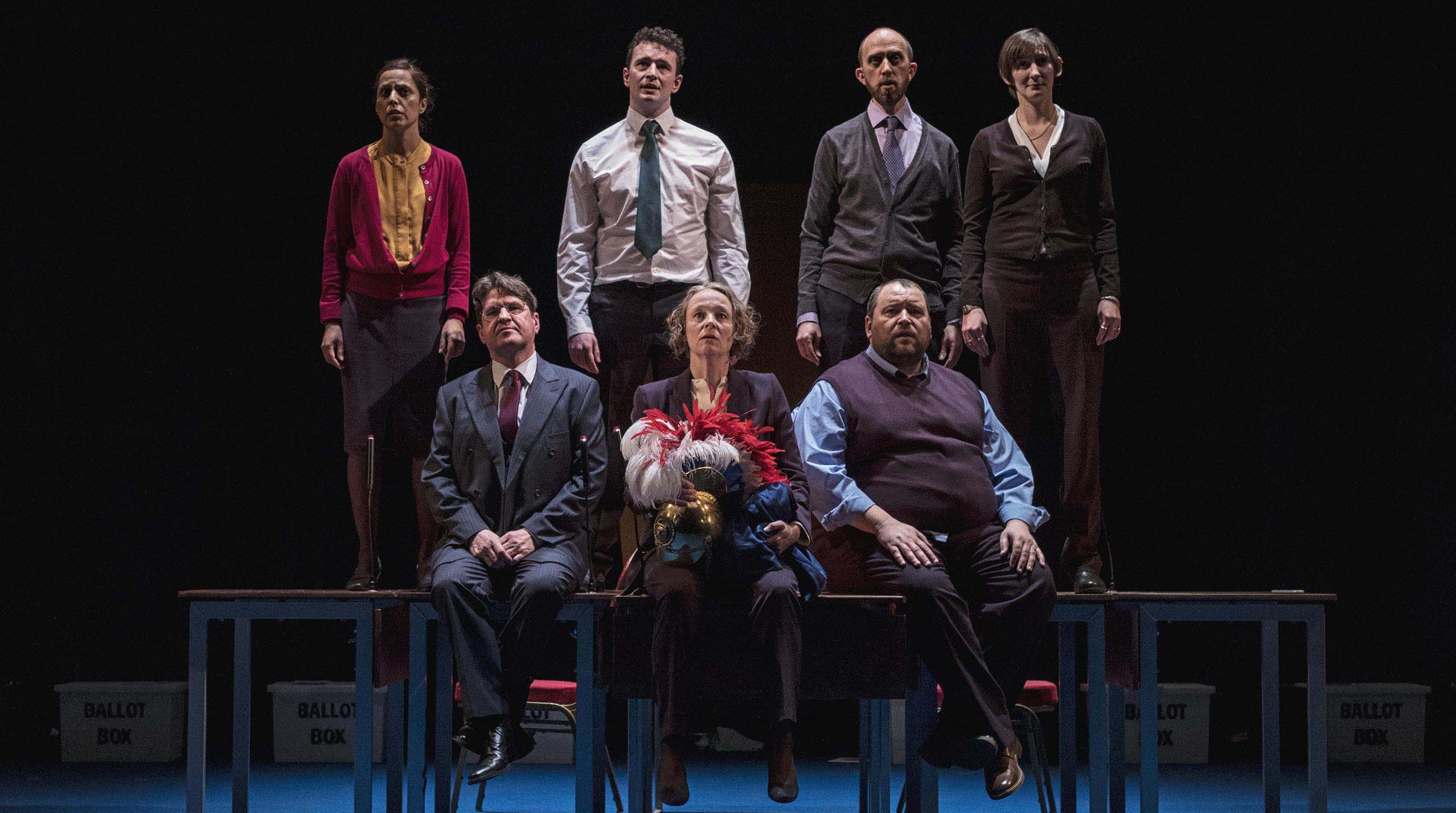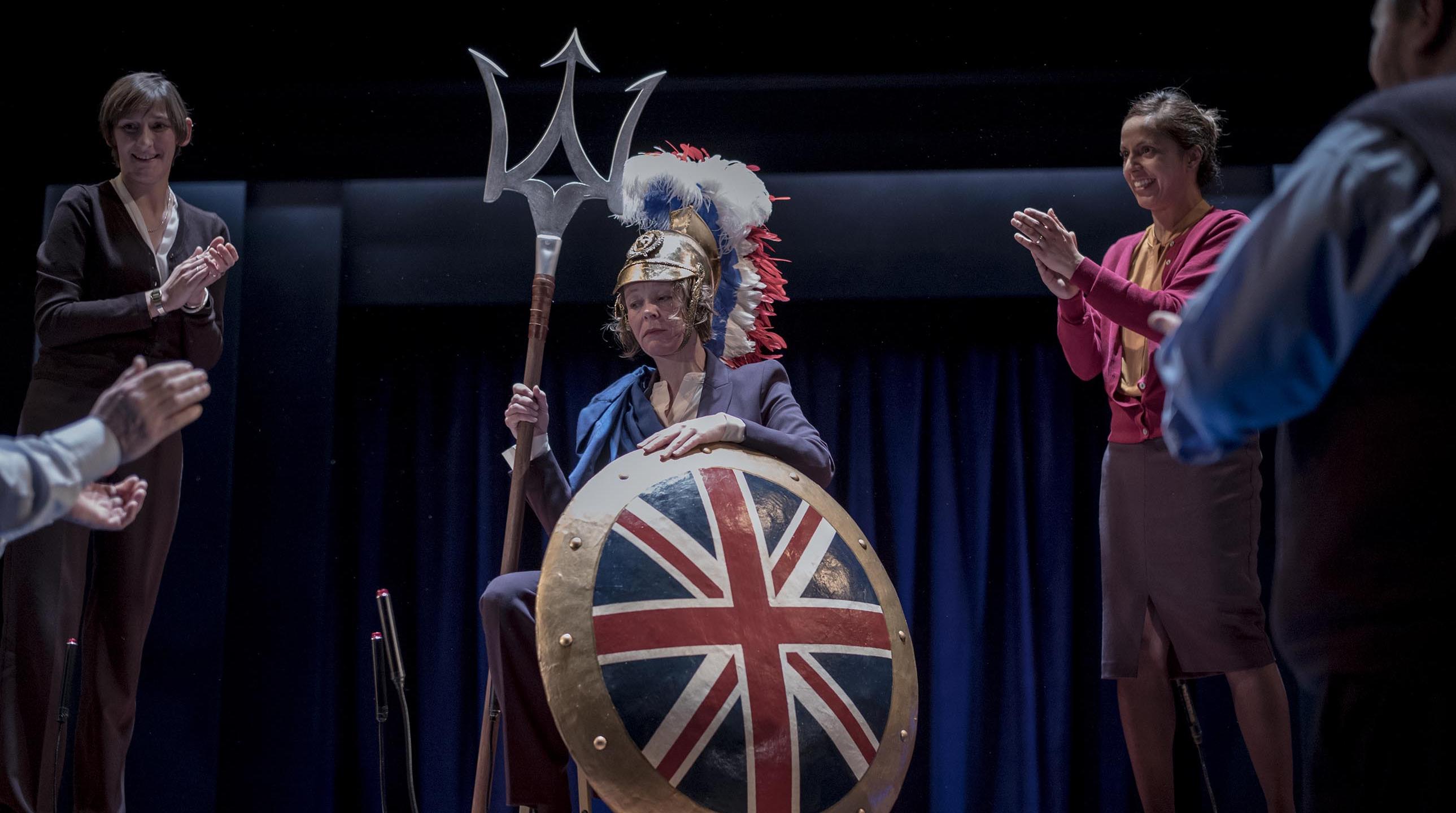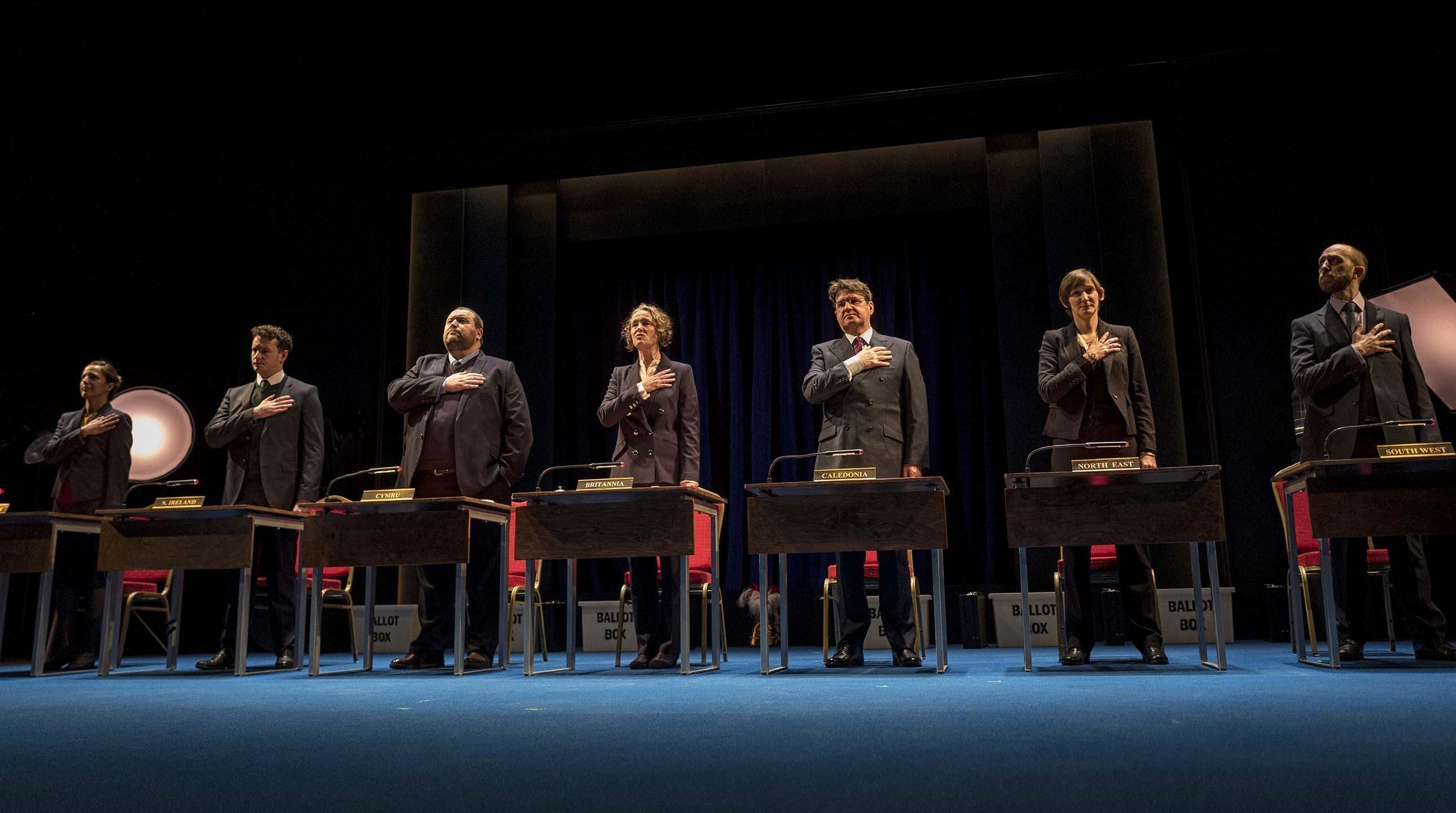My Country is a verbatim piece on the EU referendum, Carol Ann Duffy’s team took interviews with people the breadth of the country in the days directly after the vote.
As we entered the theatre, I very much felt like I was in an old village hall, like the one in the village I grew up in; it was our theatre, meeting place, polling station and occasional party venue. Innocuous chairs, exactly like we had in my old village hall, were stacked around the stage, there was a row of desks with microphones attached, and a number of ‘ballot boxes’ scattered around. At the edges of the stage were lamps, there was never any pretence of this not being a performance. A couple next to me remarked on the lack of music, on feeling slightly awkward and not quite knowing the rules, a question which was quickly answered – a woman walked in from outside the theatre and ‘turned on’ the stage lights with a remote, then turned on the lights over the audience. She addressed us directly, told us we were here to witness this meeting, whatever that turned out to be. She turned the lights out on us, and turned on some tunes for her to set up to – archetypal British music, ‘Greensleeves’ features, Britannia’s plumed hat is pulled from a big bag, it’s funny, funnier than I was expecting it to be. She is interrupted by a stocky man walking in, taking the remote and switching the music to overwhelmingly loud bagpipes until she turns it off. It’s Caledonia. The woman is Britannia, or Britney to her friends. This is the central conceit of the play, representatives of areas of Britain are meeting to discuss the EU referendum. They speak sometimes as themselves, sometimes they echo, verbatim, the voices of their constituents, as it were, which is an incredible feat of mimicry if nothing else. Britannia speaks with the voices of Westminster, Boris, David, Theresa, once Jo Cox.
This is where my problems started with this play, the representatives are immediately presented as stereotypes. Some more than others, the Welsh man enters singing and the woman from the North East comes in last, late, and hungover. Some of these stereotypes are later backed up with statistical evidence (the North East does have the most binge drinking) and they are funny, if you know people who fit the mould, (I recognised a lot of people in North East), but I question whether a play about unity is the best place to be airing our old biases. I also struggled with the fact that often the audience were laughing at something just because it was in a regional accent, I wonder how the people who gave the interviews would feel if they were in the audience.
This isn’t to say that the verbatim technique is ineffective or only played for laughs. Some of the most affecting moments in the piece come from these voices, from the mouth of a 13 year old Welsh boy who thinks leaders should lead by example, from a woman who feels unsafe to walk on the streets she was born on, from a woman who is distraught at the way we treat refugees, who says she would adopt a child, a whole family if she could afford it. Most of the voices we hear are pro leave – which isn’t necessarily a failing, but it is not what this show is billed as. We know this isn’t representative of the country, we know it was almost a 50/50 split – so why give one set of voices more time than the other? If it was for shock factor, it didn’t work, I could have found everything said in this piece in an online comment section. It’s not that I refuse to hear these voices, it’s that they’re not the only ones that should be heard. It just wasn’t as nuanced a debate as I know is out there.
My other main problem with the play has been articulated better in other reviews, but I do need to mention it here. In 2017 Britain, you cannot claim to represent these islands with an almost entirely white cast. You cannot claim to represent the British people with not a single black actor on stage. It’s just not accurate. Afronalysis has a much more in-depth discussion of this, so I will leave this point as it stands and direct you to that blog if you have further interest in the subject.
I did enjoy Britannia’s monologue on Britain, on carrying the scars of our battles, on what it means to be the memory of this island, after the representatives descend into chaos and shouting at each other. It was a beautiful piece of writing from Duffy, and it definitely evoked an emotional response, I felt very connected to the beautiful country I call home, perhaps the first time I have consciously done so in a long while, probably since the referendum. I enjoyed the dance break, though I wasn’t sure what exactly the point was. I admired the talented mimicry and I was never bored, though I was often distanced.
I went into ‘My Country’ expecting to be very moved – one way or another. I was expecting some kind of anger, a lot of sadness, I’d also heard it was funny so I was looking forward to that. Two hours later, I sat down to write this review and now I’m struggling to feel anything at all. For a play about Brexit, it was utterly politically barren. Perhaps it was trying so hard to unite everyone and not be in any way preachy or lead to conclusions that it ended up completely circumventing its own message. Or perhaps there was never a real message in the first place, just a general platitude to ‘listen’. Either way, this was not how I expected to be feeling.




